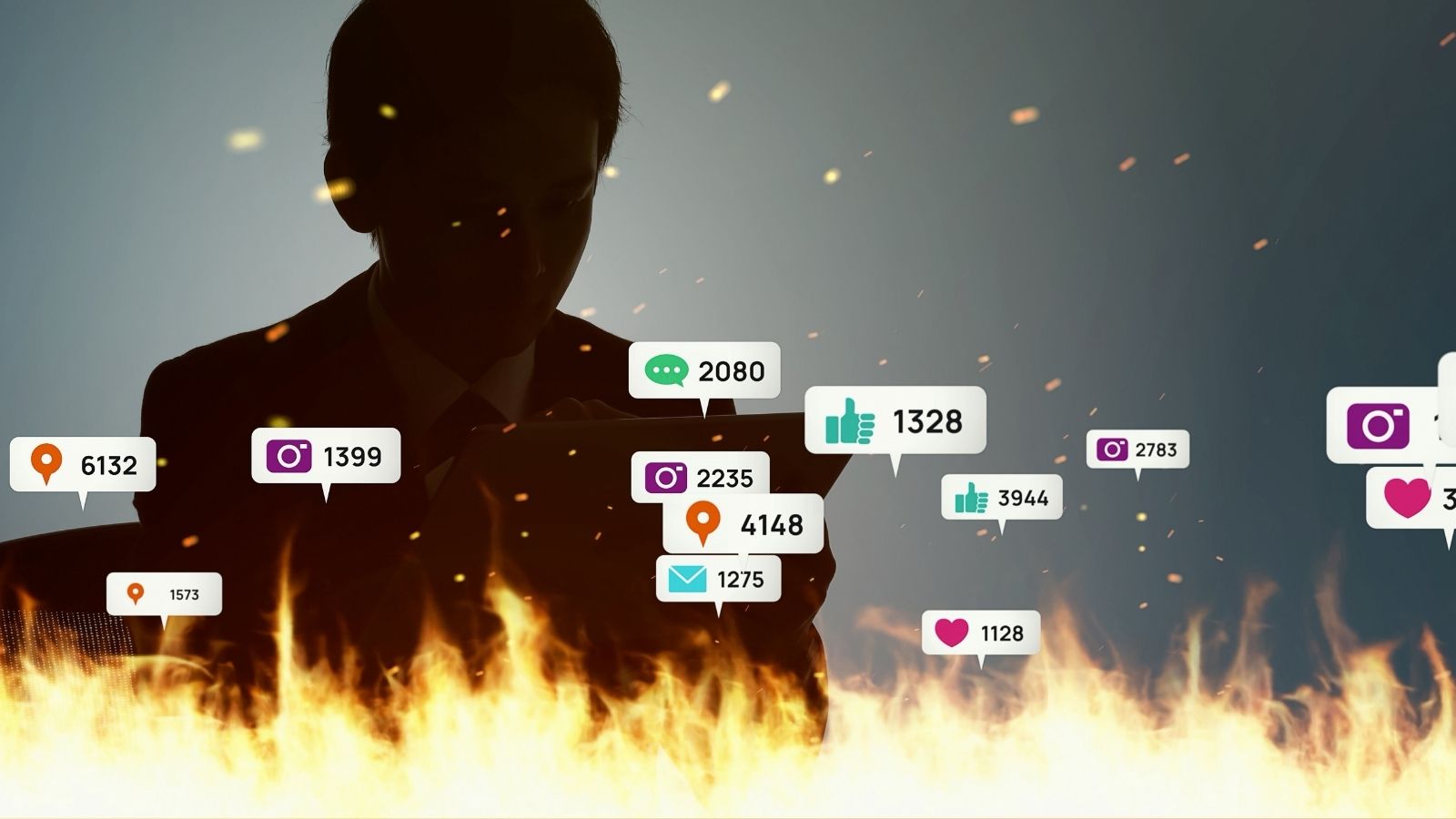In today’s hyper-connected world, parenting comes with unique and often troubling challenges. Parents face constant pressures from social media, overwhelming information, and fast-changing technology. Kids are surrounded by screens, which can interfere with real-life experiences. Cyberbullying and online predators are just some of the threats they encounter. Finding a balance between spending quality time with children and dealing with digital distractions is hard. These 20 disturbing realities highlight the difficulties parents must navigate to protect their children’s emotional, mental, and physical well-being in an always-connected world.
Rise of Screen Addiction

The biggest problem that modern parents have is screen addiction. Children today spend too much time glued to their various gadgets, whether gaming, YouTube videos, or social media. If this happens, over-reliance on screens affects sleep, exercise, and studies, making it hard for parents to weigh in.
Reduced Face-to-Face interactions

The use of social media and messaging applications has reduced face-to-face communication. Children prefer to ‘text’ or ‘chat’ online rather than meet face-to-face with peers. This impacts their practical social skills and emotional intelligence. To parents, this calls for motivating children to engage in meaningful, face-to-face communication.
Exposure to Inappropriate Content

In today’s digital age, children can easily find inappropriate content online, often without parents being aware. Even with parental controls in place, explicit material, violent media, and harmful ideas can still reach them. This exposure may affect their emotional growth and cause confusion or distress at a young age.
Cyberbullying

Bullying is not just in the schoolyard anymore but cuts across every device, especially social media, through which children access content. Cyberbullying poses an equal risk anytime and anywhere and keeps parents up at night. The victims are primarily silent because a bully can access social media applications and messaging platforms anonymously, often leaving parents unaware of what has transpired.
Invasion of Privacy

Privacy is a significant concern in today’s era of technology. The threat of losing their individuality looms large—not because of social media oversharing but because companies start collecting data about their children’s browsing behavior. So, parents should always be watchful and impart the values of privacy to their children while sharing as little as possible about their children on social media sites.
The Perfection of Social Media

Life for kids looks like it has been put on social media sites through heavy filtration, setting standards most cannot achieve. It results in problems like low self-esteem, anxiety, and depression. Now, parenting involves teaching the kids how to navigate their new world without getting into the comparison cycle.
Parental Screen Time Dilemma

There’s nothing quite so appealing to parents as screens. Even many adults have difficulty keeping control of their use of screens, making them even worse role models to children. This creates a tricky paradox: How can parents enforce screen time limits when they have problems following those limits themselves?
Loss of Outdoor Play

The attraction of screens makes children stay indoors during their childhood and negates the possibility of outdoor play and exercise. Such a lifestyle attracts health problems like obesity and dilutes a child’s connection with nature. Parents must now promote outdoor time and restrict indoor, screen-type activities.
Digital Footprint and Its Impact

A child’s digital footprint, created through online activities, can have long-term consequences. Every post, comment, or shared image leaves a trace that can be difficult to erase. As children age, their digital history could impact future opportunities, such as college admissions or job prospects. Parents must be vigilant in teaching their kids about responsible online behavior, as even innocent actions now can lead to unintended consequences later.
Deterioration of Critical Thinking

The constant flow of information in today’s digital world can contribute to the decline of critical thinking in children. With answers just a click away, kids may rely on quick searches rather than analyzing information or solving problems independently. Over-reliance on technology can weaken their ability to think critically, question sources, or evaluate facts.
Tech-Based Instant Gratification

Technology has conditioned children to expect instant gratification: instant results from an internet search or likes on social media. This intolerance does not confine itself within the virtual walls of social media, spilling into other areas of life to the extent that parents find it difficult to instill in their children the values of hard work, patience, and perseverance.
Digital parenting guilt

Parents feel guilty or inadequate because the world has so many blogs on parenting, websites, and social media influencers giving advice. Keeping up with the latest trends and new technologies can be particularly overwhelming.
Sleep Patterns

Exposure to blue light from the screen interferes with sleep patterns, especially in children who use their devices at bedtime. Parents will have to fight the battle with their children over setting up tech-free zones and times to ensure a good night’s sleep.
Normalization of Instant Communication

Such a hyperconnected world means children are getting used to instant communication with friends and other unknown individuals. In most cases, it makes children fail to understand the essence of having boundaries and delayed responses, leaving parents to step in where some gaps are left.
Cyberstalkers

The threat of cyberstalkers poses significant dangers for children in the digital age. These individuals can use social media, messaging apps, and other online platforms to harass or intimidate young users, often remaining anonymous. Children may not fully understand the risks of sharing personal information online, making them vulnerable targets. Parents must educate their kids about the importance of privacy settings and recognize red flags in online interactions.
Promoting Creativity in an Information Age

On the one hand, technology gives creative outlet avenues; on the other, it chokes organic, imaginative play. Parents must find how to foster that creativity in an era where instant entertainment lurks in every corner, leaving little room for boredom or self-directed creative exploration.
The Digital Touch of Academic Performance

The digital landscape significantly influences academic performance. While online resources can enhance learning, excessive screen time may lead to distractions and reduced focus. Children may struggle to balance their digital activities with studies, affecting grades and comprehension. Parents must encourage responsible technology use to support their children’s educational success.
Challenges of Parenting Without a Roadmap

A clear map to guide parenting in the digital age does not exist. Parents often face uncertainty in navigating technology’s impact, leading to stress and confusion as they strive to protect and guide their children.
The Role of Influencers and Online Celebrities

Influencers and internet celebrities in the era of complete digitalization have the most massive influence on the self-perception and aspirations of young people. Parents have to guide their children as these icons promote unrealistic, materialistic, or unsafe lifestyles.
Too Much Exposure to World Affairs

Information concerning world affairs is essential, but overexposure to destructive information is terrible and scary for kids. With a 24-hour news cycle, they are subjected to violence or disturbing facts sometimes, and this leads to fear and anxiety. They filter this information, put it into perspective, avoid being emotionally overwhelmed, and elevate parenting to a new level.
Conclusion

Navigating parenting in a digital age presents numerous challenges that require ongoing adaptation and vigilance. From exposure to inappropriate content to the pressures of social media, parents must remain proactive in guiding their children through these complexities. By fostering open communication, setting boundaries, and encouraging critical thinking, parents can help their children thrive in a world filled with both opportunities and risks. Emphasizing the importance of balancing digital engagement with real-life connections will enhance family relationships and promote healthier development. Understanding and addressing these challenges will empower parents to raise resilient, well-rounded children in an increasingly connected world.
18 Reasons Why People Are Leaving Florida in Masses

Exploring factors that impact the desirability of living in Florida, this list delves into various challenges shaping residents’ experiences. From environmental concerns like rising sea levels to economic factors such as fluctuating job markets, these issues collectively contribute to a nuanced understanding of the state’s appeal.
18 Reasons Why People Are Leaving Florida in Masses
